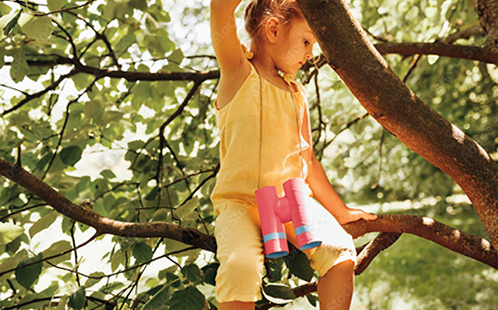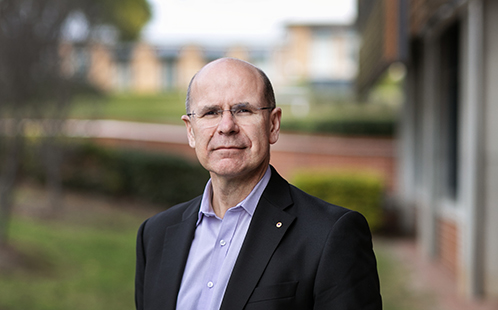Nature Play Week encourages outdoor learning for kids

Nature Play Week beginning Wednesday, 2 April, is championing the theme ‘Kids do better outside!’ and encouraging parents and educators to embrace the power of outdoor play.
Professor Tonia Gray from Western Sydney University’s Centre for Educational Research and School of Education is a leading expert encouraging parents and teachers to embrace nature play and allow children to learn through outdoor experiences.
Professor Gray, a senior researcher in eco-pedagogies and outdoor experience-based education, highlights the long-term benefits of nature play.
"Unbridled, free play outdoors in nature has lasting positive effects on cognitive function, as well as physical, social, and mental well-being," said Professor Gray.
Professor Gray emphasises that the early years of childhood are an influential time for supporting healthy development. Not only is childhood a period of rapid physical growth, but architectural change in the brain occurs as well.
"During this period, nature play provides children with unique opportunities to use their minds and bodies, imagination, curiosity and social skills without adult intervention,” she said.
Professor Gray’s research shows that free play outdoors in nature has long-lasting positive effects on cognitive function along with gains in physical, social and mental well-being. It also helps establish a child’s motor coordination, balance, agility, flexibility, and strength.
"When children participate in nature play, they generally interact with their peers’ building forts or teepees, or navigating logs across creek gullies. Nature play is a potent vehicle for children to develop crucial social skills like empathy, cooperation, and communication skills.”
"Overcoming fear and challenges and exploring new adventurous environments in nature can bolster a child's confidence and self-esteem. The unstructured nature of outdoor play encourages children to think independently and explore their surroundings freely by using curiosity and awe.”
Spending time in nature—especially immersed in nature play—can improve attention span, self-regulation, creativity, and problem-solving skills in children.
"Science consistently tells us that young children learn vital life skills through play, especially outdoor play which natural environments act as a driver for learning,”added Professor Gray.
"The benefits of nature play are cumulative and amassed over time, meaning that consistent exposure to nature over time, generates the most significant results."
ENDS
2 April 2025
Image credit: Adobe Stock
Latest News

ABC RN transcript: Vice-Chancellor Professor George Williams discusses higher education sector, student support, and the impact of AI
The following is a transcript of an interview that aired on ABC Radio National Saturday Extra between presenter, Nick Bryant and Vice-Chancellor, Distinguished Professor George Williams AO.

Western Sydney University are the number one Australian solar car team at the 2025 Bridgestone World Solar Challenge
Western Sydney Solar Car team has crossed the finish line placing preliminarily sixth in the world overall, and the number one Australian team in the world’s most prestigious solar car challenge.

Western Sydney University Statement on Cyber Incidents
Western Sydney University has issued an update to its community following confirmation that previously stolen personal information was published online, including on the dark web.
Mobile options:

